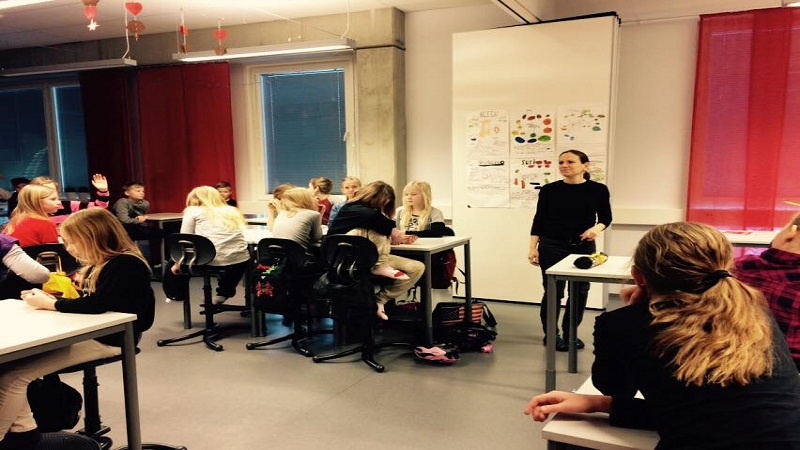Do you know how to raise an emotionally intelligent child? The children with emotional intelligence are happier, more confident, and more successful, well, this capability will help them become responsible and caring adults. This skill fosters the knowledge and management of their feelings and emotions, also teaches them to interpret and face the emotions of others. Therefore, the development of emotional intelligence in children is key in their education.
How to raise an emotionally intelligent child?
You can help your child find the solution himself. Ask him/her how he would act next time and visualize, how he/she wants other people to see him, like the rude child, or as the good and attentive child.
Teach him to set goals. For example, you can say: “If you want that toy you have to pick up your things, be good as mom and dad …” Also, give him the confidence to talk to you. If you comment on any difficulty, do not shout and in bad ways.
Congratulate him when necessary, recognize his successes, as you expect them to recognize yours at work or at home. Tell motivational and kind phrases so you feel clothed and that you value it.
You must care about your child’s world, not because he is a child means he has no problems. Every step you take with him will bring you closer to developing his emotional intelligence.

Help him recognize and name emotions
He knows how to feel and knows how to communicate it. For this, you must build a vocabulary of emotions (joy, sadness, fear, anger, disgust, angry, shy, excited, happy …), both positive and negative. Encourage him to express what he feels. When they know how to recognize them, they understand where they come from and learn to deal with them. Mindfulness exercises help in this recognition task.
Teach him to be empathetic
This begins with the parents also being empathetic with the child. Children do what they see, not do what you tell them. Getting into the skin of the other gives a new perspective or point of view, which helps to understand others better and, at the same time, to be understanding. Performing tasks at home according to their age, reading fiction books with psychologically complex characters or volunteering activities stimulate empathy.
Promote self-control
The psychologist Daniel Goleman defines emotional intelligence as the ability to self-control and is able to master stress and negative emotions. Parents must accept any feeling or emotion but not behaviors. So the way to help deal with children with their emotions – and make balanced decisions based on what is important – is based on encouraging the development of problem-solving skills. Help him set goals and generate solutions to meet those challenges.
Some recommendations
Keep in mind that children do not always spontaneously develop emotional qualities and social abilities. Emotional intelligence, like all behavior, has to be transmitted and educated, especially from the models that the child is created. In this way, moms and dads who manifest and show tenderness and love produce very positive effects on their children.
Parents play an important role in the development of children’s emotional intelligence. It is they who are present throughout life, and on many occasions, a single sentence can change the way the child perceives their environment.
Play a lot with your child without giving instructions, but to make them shared moments, free of judgments and pressures. Accept your emotions. You should not ignore or belittle the child’s feelings, thinking that their problems are trivial. You should try to realize their feelings and give alternative emotional solutions.
Emotional intelligence is a more reliable predictor of success in life than IQ. Although both capacities cannot act at full capacity without each other, they conclude in this study. If parents do not healthily manage their feelings, they cannot transmit it to their children. So, we should start with ourselves.








